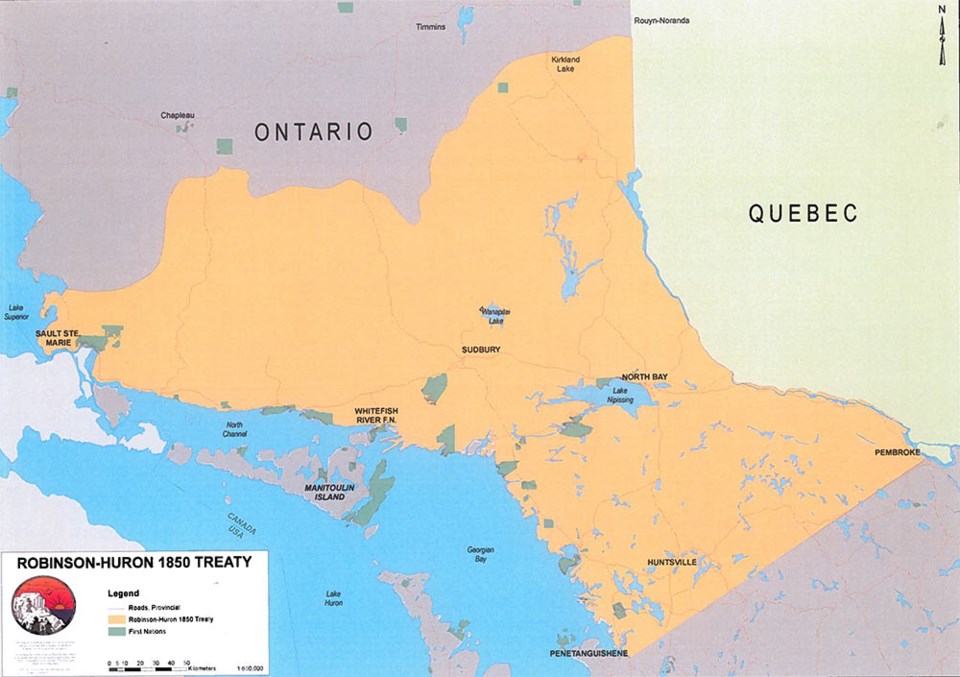Ontario is taking its appeal of the landmark decision in the Robinson Huron Treaty annuities claim to the Supreme Court of Canada this week — a move that some treaty beneficiaries say could potentially impact talks around increases to annual treaty payments down the road.
The court hearings over the matter, which will look at Ontario’s issues with court decisions made in the first two stages of the annuities claim, take place Nov. 7 and 8.
“Our communities were disappointed that Ontario asked the Supreme Court to be granted the privilege to appeal,” said Sagamok Anishnawbek First Nation Chief Angus Toulouse, in an interview with SooToday following the first day of court proceedings on Tuesday.
This week’s Supreme Court hearings are centred on previous court decisions that led to the historic $10-billion settlement awarded earlier this year to Robinson Huron Treaty beneficiaries and trustees in 21 northeastern Ontario First Nations for unpaid increases to treaty annuities dating back to the late 1800s.
As billions of dollars in wealth generated from the profits of the mining, fishing and forestry sectors grew in the treaty territory, payments to Anishinaabe beneficiaries have remained capped at $4 per person since 1875.
In 2018, the Superior Court of Justice ruled the Crown had an obligation under the 1850 treaty to increase annuities as wealth generated from the land grew over time, so long as the Crown can do so without incurring a loss.
Ontario appealed both the Stage 1 and Stage 2 decisions of Justice Patricia Hennessy, which led to the Ontario Court of Appeal upholding the decisions in 2021.
Ontario’s Stage 1 appeal focused on Hennessy’s interpretation of the augmentation clause, while the Stage 2 appeal was related to Ontario’s technical defences on limitations and Crown immunity.
Robinson Huron Treaty interests say while Ontario’s appeal does not change the proposed $10-billion settlement for past compensation, it could affect future litigation or negotiations.
In its Supreme Court appeal, Ontario is arguing that the treaty should be interpreted to mean that the province should determine increases to the annuity, not the courts.
Toulouse noted there’s been no increase to the annuity or further implementation of the treaty for the past 150 years.
“Even though they say the province — not the court — should determine the increases to the annuity, there hasn’t been any,” Toulouse said. “We’ve been forced to have to go to the court.”
The province also argues that awarding past compensation for historical treaty breaches is inappropriate, and the Robinson Huron Treaty Litigation Fund — the legal team representing treaty interests in the annuities claim — should only be entitled to receive declarations from the court at a future hearing for Stage 3 of the annuities claim court case.
The legal team for Robinson Huron Treaty First Nations will counter that Ontario has a legal obligation to increase the annuity payments.
“We recognize that this is just about the past. But going forward, there’s still a significant amount of negotiations and work that has to go into what the new annuity will be — and it certainly can’t be $4,” Toulouse said.
The hearing continues in Supreme Court tomorrow, with a decision on the appeal anticipated sometime next year.
